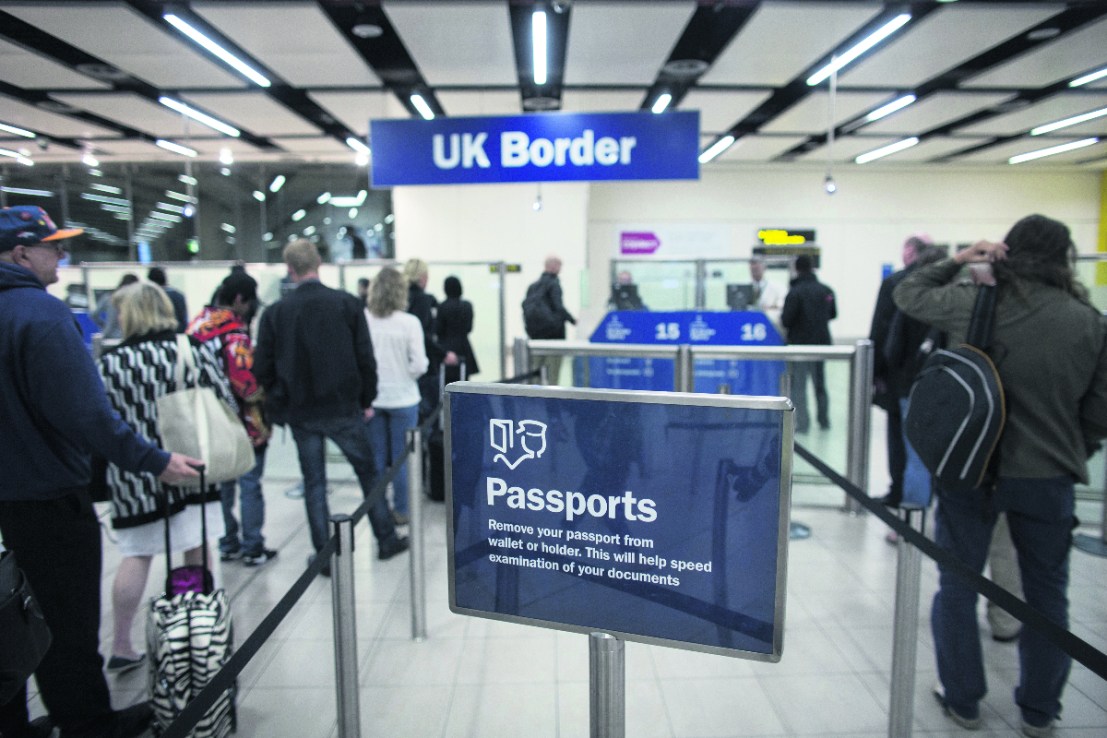UK net migration hit record 906,000 peak before 20 per cent fall
Net migration in and out of the UK has dropped by 20 per cent to around 728,000 in the past year, official figures have shown, after hitting a record peak of 906,000. The level reached a higher than previously thought figure of 906,000 in the year to June 2023, according to fresh data from the [...]


Net migration in and out of the UK has dropped by 20 per cent to around 728,000 in the past year, official figures have shown, after hitting a record peak of 906,000.
The level reached a higher than previously thought figure of 906,000 in the year to June 2023, according to fresh data from the Office for National Statistics (ONS).
And since then the measure for the difference between the number of people arriving and leaving the country fell by two fifths in the 12 months to June 2024, now standing at 728,000, after the previous government brought in policies including restricting some arrivals bringing dependants.
This means the total for the year to June 2023 has been revised upwards by 166,000 from the initial estimate of 740,000, the figures published today reveal.
While net migration in the year to December 2023 was initially estimated to be 685,000, and is now thought to be 866,000 – an increase of 181,000, the ONS also found.
During the year to June 2024, most people – 219,000 – came to the UK as work-related dependants, while 157,000 came for work-related reasons as the main applicant.
Around 199,000 people came to the UK to study, as the main applicant, bringing some 63,000 dependants. While 8,000 people arrived on humanitarian resettlement visas; 31,000 came on the Ukraine humanitarian scheme; and 80,000 claimed asylum.
The stats body said that while remaining high by “historic standards”, net migration was now “beginning to fall”.
The revisions come as the ONS has continued to review its net migration figures as more complete data becomes available and has improved how it estimates the migration behaviour of people arriving in the UK from outside the European Union.
Better analysis of the number of people coming to the UK amid the conflict in Ukraine has also been taken into account.
ONS director Mary Gregory said that since 2021, international migration has been “at unprecedented levels”, driven by factors including the Ukraine war, and changes to the post-Brexit immigration system, as well as “pent up demand” for study-related migration.
While remaining high by historic standards, net migration is now beginning to fall and is provisionally down 20 per cent in the 12 months to June 2024
“Over that period we have seen a fall in immigration, driven by declining numbers of dependants on study visas coming from outside the EU.”
And she added: “Over the first six months of 2024, we are also seeing decreases in the number of people arriving for work-related reasons.
“This is partly related to policy changes earlier this year and is consistent with visa data published by Home Office.”
Badenoch’s vision to fix the ‘broken’ system
Speaking yesterday, Conservative leader Kemi Badenoch said she planned to set out a “new approach” to migration, which she said was “broken”, and suggested she was willing to consider leaving the European Convention on Human Rights (ECHR).
She said: “But if we’re going to leave the ECHR, we need to have a plan, not just reforms. There is a lot more that is going on in our immigration system beyond the ECHR.”
And Badenoch said there had been a “collective failure of political leaders from all parties over decades” to grasp migration, adding: “On behalf of the Conservative Party, it is right that I as the new leader accept responsibility, and say truthfully we got this wrong.”
Home Office minister Seema Malhotra told the BBC this morning that Labour wants to see “net migration coming down, but we have to do so in a way that is tackling the causes”.
She said: “Because if much of net migration has been driven by recruiting workers from overseas, you also have to look at what the impact on the economy would be.”
Starmer’s migration overhaul
The Prime Minister has announced an overhaul of the immigration system as he criticised the Conservatives for what he dubbed “a one-nation experiment in open borders”.
Sir Keir Starmer held a No10 press conference and said his government would “imminently”, publish plans to bring down the number of people entering the UK.
Taking aim at his predecessors, he said: “Failure on this scale isn’t just bad luck. It isn’t a global trend or taking your eye off the ball… This happened by design, not accident.
“Policies were reformed deliberately to liberalise immigration. Brexit was used for that purpose, to turn Britain into a one-nation experiment in open borders.”
Starmer said he would reform the points-based immigration system to require firms hiring foreign workers to also train British people, as well as crack down on visa system abuse.
He said: “Let me say directly to the people watching, where the last government failed you, this one will not. They drove immigration numbers up. We will get them down.”
It came as home secretary Yvette Cooper announced a “landmark” deal with Iraq, intended to crack down on people smuggling and boost border security.
The UK will provide up to £300,000 for Iraq law enforcement training in border security, with money for organised crime and a new irregular migration and border security taskforce.
Responding to Sir Keir’s speech, shadow home secretary Chris Philp criticised the Prime Minister as having “no credibility on this issue”.
He said: “He has ruled out a legal migration cap and since he became Prime Minister channel boat crossings are up 23 per cent. And we learnt today that 6,000 more asylum seekers are in hotels – despite Starmer’s promise to end hotel use.”



